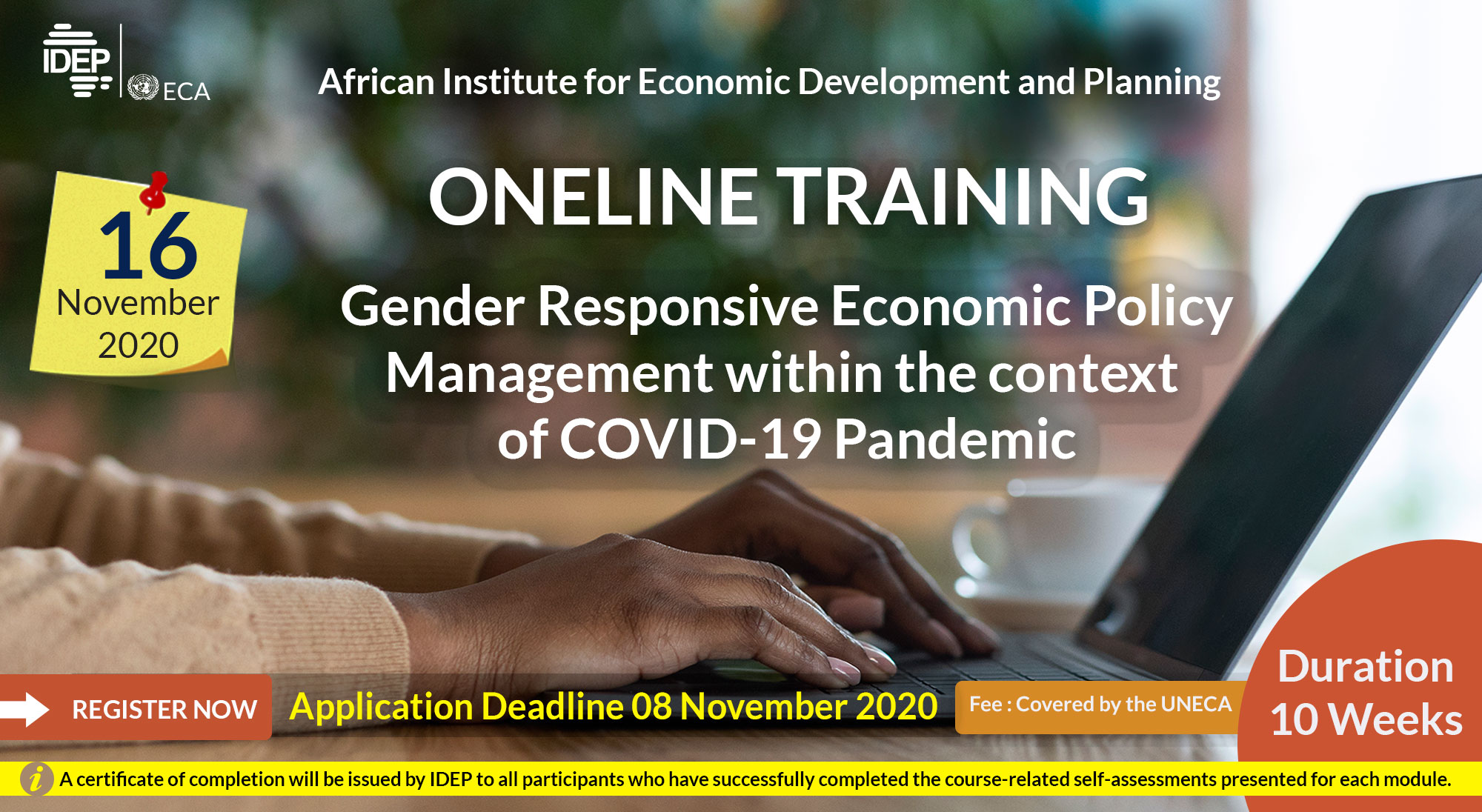Gender Responsive Economic Policy Management within the context of COVID-19 Pandemic
PROGRAM RATIONALE
Evidence shows that investing in gender equality such as increasing women’s access to health care, employment and credit, can accelerate economic growth and reduce poverty and that persistent
gender inequalities reduce prospects for economic growth. Yet attention to gender equality is still lacking in economic policy formulation and implementation.
While the world has achieved progress towards gender equality and women’s empowerment under the Millennium Development Goals (including equal access to primary education between girls and
boys), women and girls continue to suffer discrimination and violence in every part of the world.
Thus, the Gender Responsive Economic Policy Management Program is a continuation of the achievement of Goal 5, of the Sustainable Development Goals (SDGs); “Providing women and girls
with equal access to education, health care, decent work, and representation in pollical and economic decision-making process will fuel sustainable economies and benefit societies and humanity at
large”.
Furthermore, the course on Gender Responsive Economic Policy is taking part in a very particular context this year, the COVID-19 pandemic.
According to UN Women’s Office for West and Central Africa, COVID-19 will impact men and women in different ways because of their different socio-economic roles and existing gender inequalities. Overall social distancing measures and the economic slow-down as a result of the crisis is going to affect those in vulnerable employment the most. Groups of women at risk which are particularly vulnerable to the crisis in African countries include informal and daily wage workers, domestic workers, migrant and refugee women and girls, victims of Gender-Based Violence, girls in food insecure households, old women and female health sector workers.
Others will see mobility restrictions, closure of borders or closure of urban markets and/or the hospitality industry reduce significantly their income and livelihoods.
Furthermore, women led MSMEs will be severely impacted by the crisis and are concentrated in low productivity sectors (agriculture and services). These businesses are fragile, have problems to access
finance in normal conditions, and have little margin to cushion economic shocks. Disruptions in supply chains and closure of markets will have an immediate impact on them as they do not have financial resources to maintain operations beyond a few weeks or days in some cases. Special attention should be paid and measures to strengthen their resilience considered.
There is also an increase in the burden of Unpaid Work . Households’ care burden is going to increase as a result of the crisis as schools close, and mobility restrictions limit availability of domestic work
and other household support services. Women do 3 times more work than men globally and this pattern is expected to reproduce itself during the crisis.
Therefore, it is likely that women will be shouldering the heavy burden of unpaid care work during this period, adding further strain to physical and mental health.
LEARNING OBJECTIVES
The course of “Responsive Economic Policy Management” aims at providing policymakers and development practitioners with the required skills and knowledge that are needed to identify and address gender biases in the economic sectors and to analyze economic policies and budgets from a gender perspective; and give tools and mechanisms to address the economic shock resulting from the COVID-19 pandemic. This bilingual course (English and French) is delivered by the African Institute for Economic Development and Planning (IDEP).
The course is expected to enhance gender awareness in economic policy formulation and implementation and sharpen the understanding of participants on the links between gender and economic policy formulation and management. The course will make it possible for participants to become familiar with the analysis and use of gender concepts, tools and strategies especially in the economic sectors. Expected skills upon completion include :
- Fostering an enhanced conceptual understanding of gender concepts in economic policy design, implementation and evaluation;
- Enabling participants to acquire knowledge and expertise to formulate, implement, monitor, and evaluate policies, programmes and budgets from a gender perspective;
- Providing participants with knowledge and expertise to mainstream a gender perspective in national development policy dialogue and planning as well as in international negotiations;
- Providing participants with the tools and mechanisms to address the economic shock resulting from the COVID-19 Pandemic and its impacts; women are particularly impacted
